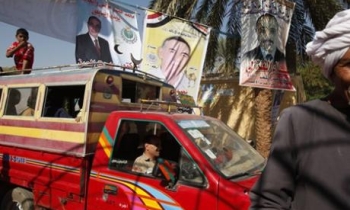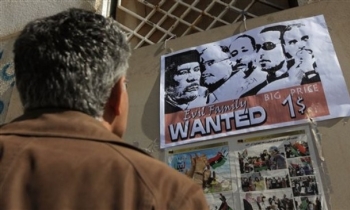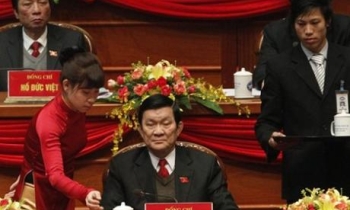A French court Thursday cleared satirical weekly Charlie Hebdo in a case brought by Muslims who were angered by its publication of caricatures of the prophet Mohammed. The court’s decision is being seen as a major victory for free speech in France.

Charlie Hebdo and its director, Philippe Val, were accused of "publicly abusing a group of people because of their religion.'' Val had risked a six-month prison sentence and a fine of up to $29,250, according to Associated Press (AP).
The trial last month drew nationwide attention in a country with Europe's largest Muslim community and a strong commitment to freedom of expression and secularism. The two-day trial, which was held in early February, had provoked protests among intellectuals and some politicians in France, who in a petition published in the daily Liberation warned about "general self-censorship" that a guilty verdict could produce.
The state prosecutor — whose role in court is to defend French law — argued in favour of the magazine, which on February 8, 2006, printed three caricatures — two of them reprints of those carried by Danish newspaper Jyllands Posten in 2005 that stoked anger across the Islamic world. One caricature was an original. The three caricatures were published on February 8, 2006, in a special edition devoted to caricatures of Islam. The issue sold 400,000 copies in a few days, whereas the magazine's usual circulation is 140,000.
The Paris Grand Mosque and the Union of French Islamic Organisations, an umbrella association, sued Charlie Hebdo saying the cartoons insulted Muslims by equating Islam and terrorism. Charlie Hebdo said it was protected by freedom of speech laws, and that the cartoons mocked fundamentalists, not Islam or Muslims. France abolished blasphemy laws in the 19th century though it has laws against racial and ethnic insults. France does not allow official statistics on race and religion.

Jean-Claude Magendie, the presiding judge, ruled that two of the three cartoons in questions did not target all Muslims, just violent ones, a Bloomberg News report said. The third cartoon, showing Mohammed with a bomb instead of a turban, could offend all Muslims, he said, but was covered by freedom of speech laws because ongoing riots in some countries about the cartoon made its publication newsworthy.
“It's an intelligent decision because it shows that even if something shocks, there are certain contexts in which you should go ahead and publish because it helps further the debate,” said Georges Kiejman, a lawyer who represented former President Francois Mitterrand.
Interior Minister Nicolas Sarkozy sent a letter that was read at the trial where he said he “prefers an excess of caricature to an absence of caricature” and that he even though he too has often been the target of Charlie Hebdo's crude cartoons, there is in France “a liberty to laugh at everything.” Sarkozy's unsolicited intervention brought an angry response from Muslim leaders. Sarkozy is the candidate of the ruling Union for a Popular Movement in next month's presidential election.
Presidential candidate Francois Bayrou and Francois Hollande, head of the Socialist Party, also testified at the trial on behalf of Charlie Hebdo. Bayrou said that, though he would not have printed the cartoons, even as a practicing Catholic he recognised a right to mock religious leaders.
A French court in 2002 had absolved novelist Michel Houellebecq of inciting racism for saying that “all religions are stupid but Islam is the stupidest of all,” and that the Koran was “badly written.” The same court that heard the Charlie Hebdo case agreed with the French Catholic Church in 2005 that an advertisement by jeans maker Marithe et Francois Girbaud showing 13 androgynous young people lounging along a table was too reminiscent of a Last Supper and therefore an affront to believers. An appeals court overturned the ruling in 2006.









